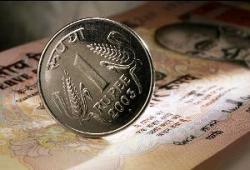The 0.08 percentage points fall in food prices from the previous week, however, is unlikely to prevent the overall inflation from vaulting to double digits in March from 9.89 per cent in February as high food and fuel prices have started spilling over to non-food items.
During the week, petrol prices rose 16.82 per cent, while diesel turned costlier by 14.99 per cent year-on-year, as government restored customs on crude and raised excise duty on petrol and diesel.
"Food inflation is likely to soften in the coming months, but fuel and manufacturing inflation could pick up. I expect overall inflation to be around 11 per cent in March," HDFC Bank economist Jyotinder Kaur said.
The government expects food inflation to fall after the arrival of the Rabi crop (winter) in the markets next month.
Finance Minister Pranab Mukherjee too in Chandigarh yesterday has said that food inflation may spread to non-food items over a period, although food prices have started coming down.
With prices set to rise, RBI is likely to make the cost of borrowings higher and take measures to draw more money out of the system in its April 20 policy.
"To tame inflation, RBI could hike repo, reverse repo and CRR by 25 basis points each in April policy," Kaur said.
During the week, potatoe prices rose by just 5.62 per cent on yearly basis, while onion prices declined 6.64 per cent.
As there is an over supply of potatoes in some markets like West Bengal, prices are likely to fall further in the days ahead, analysts said.
Prices of fruits showed a rise of 11.06 per cent year-on-year, that of rice 7.42 per cent, pulses 31.68 per cent and milk 15.31 per cent.
RBI raised key short term lending and borrowing (repo and reverse repo) rates by 25 basis points to five per cent and 3.5 per cent, respectively, to check inflation from spreading to non-food items.
On Wednesday in Mumbai, RBI governor D Subbarao had said the apex bank will continue its exit from monetary stimulus policy to check high inflation and ensure sustainable growth.
On weekly basis, moong and pork turned costlier by 5 per cent each, urad by 4 per cent, coffee by 2 per cent and fruits and vegetables by 1 per cent each.
However, masur prices declined 4 per cent, while eggs, bajra, condiments and spices and maize by 1 per cent each.
Food inflation had last slipped to below 16 per cent in the week ending November 15, 2009, when it had dropped to 15.58 per cent, according to the provisional figures.
